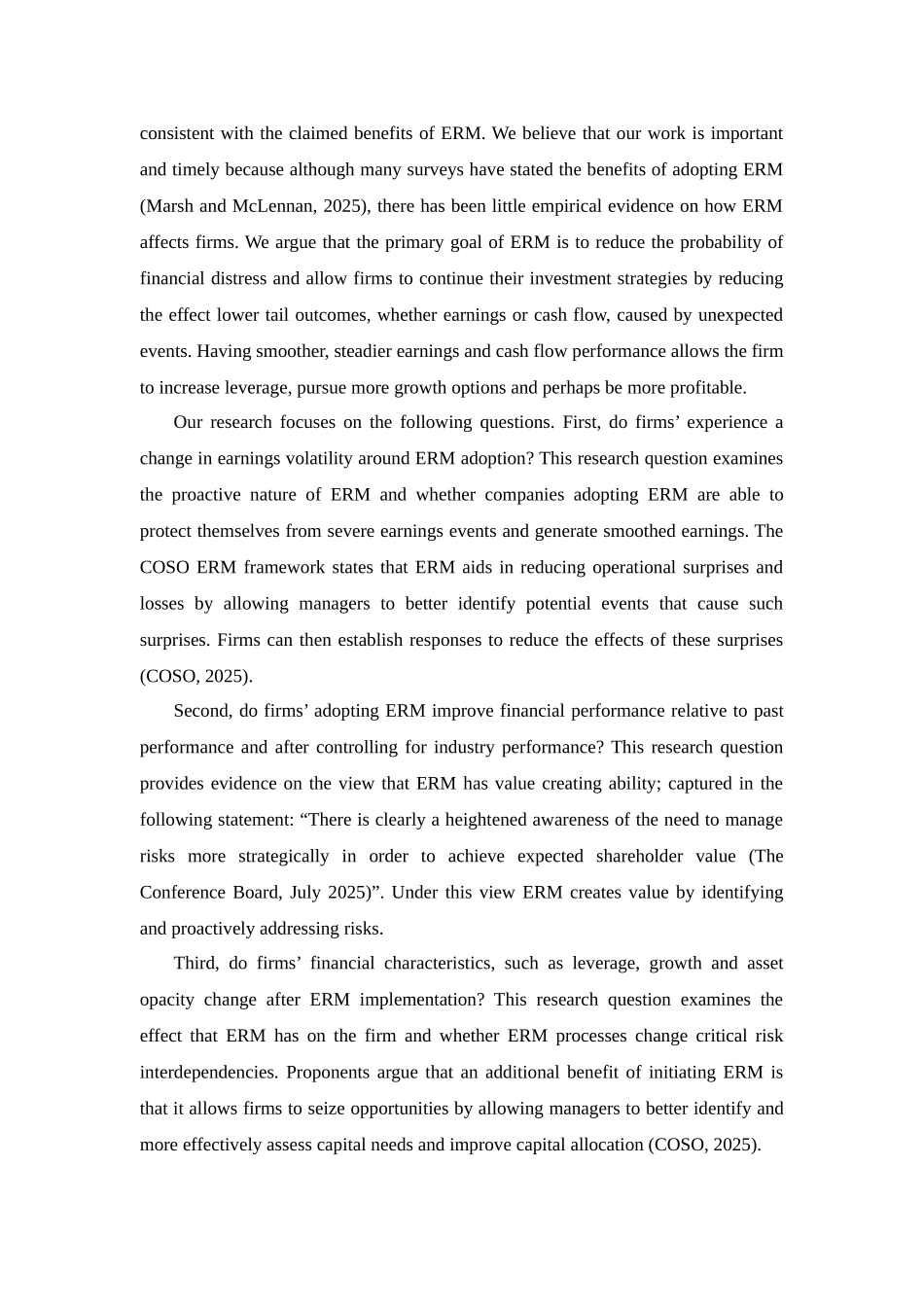中文 4150 字原文:The effects of enterprise risk management on firm performancePagach. Donald P. and Warr. Richard SWe study the effect of adoption of enterprise risk management (ERM) principles on firms’ long-term performance by examining how financial, asset and market characteristics change around the time of ERM adoption. Using a sample of 106 firms that announce the hiring of a Chief Risk Officer (an event frequently accompanied by adoption of Enterprise Risk Management) we find that some firms adopting ERM experience a reduction in earnings volatility. In general however, we find little impact from ERM adoption on a wide range of firm variables. While our results could be due to lower power tests, they also raise the question of whether ERM is achieving its stated goals. Overall, our results fail to find support for the proposition that ERM is value creating, although further study is called for, in particular the study of how ERM success can be measured.1、IntroductionEnterprise risk management (ERM) is an increasingly popular strategy that attempts to holistically evaluate and manage all of the risks faced by the firm. In doing so, ERM uses the firm’s risk appetite to determine which risks should be accepted and which should be mitigated or avoided. While there has been a considerable increase in practitioner attention on ERM in recent years, little academic research exists about ERM, and in particular about the consequences of ERM on firm performance. This is true even though the Conference Board has found that a large number of companies are now starting to use ERM as a strategic management tool (The Conference Board, July 2025). In addition, Standard and Poor’s has introduced ente...


